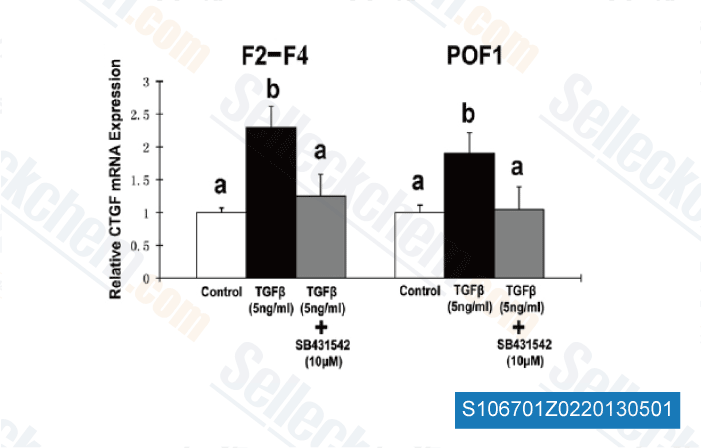In line with findings of preceding studies on colon tumors with moderately differentiation showed larger degree of CD133 IHC expression in contrast to poorly differentiated tumors and mucinous adenocarcin omas. No variation was noted in IHC expression be tween superficial and deep areas. We seldom observed unequivocal cytoplasmic or luminal staining with the crypt base in non neoplastic colonic mucosa about the tumor, just like the results of past research. In comparison using the CD133 IHC expres sion of non neoplastic colonic mucosa, there are actually even more regular and robust CD133 expression within the luminal border of non neoplastic mucosa of stomach and pancreas even the reason is unknown. Offered these re sults, further review seems to be expected to clarify whether or not CD133 is known as a colon cancer stem cell marker or not.
In this research, we employed monoclonal antibody against the CD1331 or AC133, one among the two epitopes of your CD133 protein. Another epitope is AC141. Though, the monoclonal antibodies against these two epitopes are already interchangeably employed to purify and characterize PF-05212384 PI3K inhibitor vari ous stem and progenitor cells there’s seldom discord ant expression with the AC133 and AC141 epitopes observed such as inside a study on sufferers with myelodysplastic syn drome and acute myelogenous leukemia. Furthermore, number of important aspects should be deemed while using monoclonal antibodies towards an epitope of CD133. Very first of all, there’s small identified regarding the qualities in the two epitopes detected through the monoclonal antibodies.
Sec ondly, these epitopes are advised to get glycosylated and this glycosylation is reported to be down Dapagliflozin BMS-512148 regulated upon differentiation of epithelial cells. An additional puzzling component is the pres ence of alternatively spliced variants of CD133. There in human CD133 gene exist a minimum of 37 exons and a number of al ternatively spliced kinds. Although, there is certainly minor understanding about the existence of alternatively spliced CD133 isoforms that lack the AC133 or AC141 epitopes, the epitope detrimental cells may not solely and always suggest CD133 negativity while in the absence of right verification of CD133 protein or mRNA ranges. In addition, it was recently concluded that AC133 doesn’t understand a glycosylated epitope, in contrast to preceding tips and described that differen tial splicing is additionally not the lead to of differential AC133 recognition.
Yet, it remains for the potential research to comparatively use antibodies towards all regarded glycosylated and non glycosylated epitopes of CD133 to draw a confident conclusion above the validity of  the examined monoclonal antibodies. To validate our IHC results in CRCs, we also evaluated CD133 mRNA expression in 75 circumstances from 271 circumstances which had accessible fresh frozen tissue. There was a sig nificant correlation involving mRNA expression and CD133 IHC expression.
the examined monoclonal antibodies. To validate our IHC results in CRCs, we also evaluated CD133 mRNA expression in 75 circumstances from 271 circumstances which had accessible fresh frozen tissue. There was a sig nificant correlation involving mRNA expression and CD133 IHC expression.
Histamine Receptor Signaling
A class of G protein–coupled receptors which bind histamine as their primary endogenous ligand.
